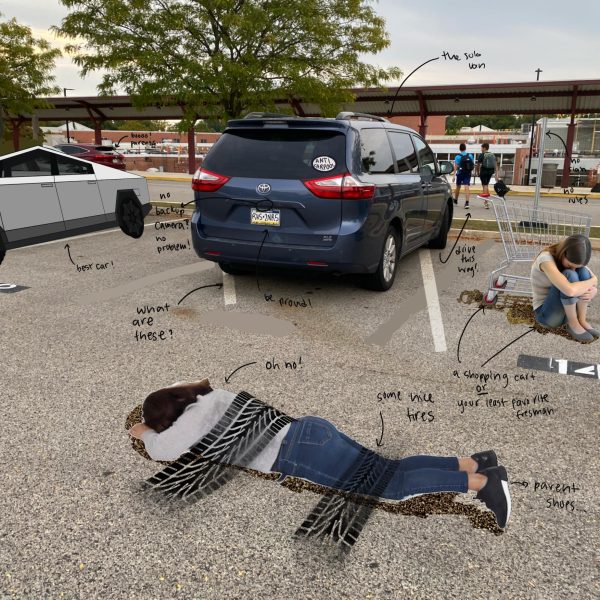Privacy in the Digital Age

January 22, 2020
Nowadays, the use of technology by people of all ages is astounding; according to the Pew Research Center, about 90% of US adults (as of June 2019) use the Internet, compared to 52% in the year 2000. This makes logical sense, as the convenience of the Internet allows us to complete various tasks, such as answering a question with a simple Google search, or watching a Youtube video for entertainment purposes. Despite the benefits of technology, people are questioning the security of the Internet and wonder whether government officials and other software have access to our computers and personal data. This raises a serious concern about our privacy: can our devices hear what we say?
In a series of five tests conducted by Youtuber Mitchollow within a one year span, he attempted to figure if our devices can record our information and give feedback to advertisements relating to that data. During his test, he opened approximately 10 websites, as a control, in order to ensure that the advertisements on the website are not related to that of his topic. After confirming that nothing is there, he closes all browsers and begins talking about his topic for approximately one minute. He then goes back and reopens the same websites and figures out if new advertisements pertaining to his topic are present, if there are, then the experiment confirms that our devices are indeed listening to our conversations.
Mitchollow continued his procedure by talking about dog toys in his first test, after which he reopens his device and finds out something shocking: results related to dog toys did pop up, which should prove that his microphone was indeed listening to him. Although this test seems conclusive, there was a major flaw with the experiment: the test was livestreamed, so Youtube was constantly inputting data live from his microphone, in order to create closed captions for the video, which requires understanding the words he says, in order to create a transcript, further explaining why the advertisements related to dog toys were showing up.
Realizing his flaw, Mitchollow repeated his experiment four more times, using various tactics such as using prerecorded audio and muting his microphone in order to thoroughly investigate our devices. At the conclusion of all four tests, Mitchollow’s experiments did not show significant evidence of our devices being tapped by malicious malware, search engines, etc. Excluding the first test, there was one exception in which cat toys (the topic he was talking about) appeared in his page once in his ten pages that he opened. However, this one occurrence was likely a pure coincidence, as the website that he found the advertisement on was related to pets, so the data was likely invalid.
To confirm the results from the experiment one more time, I decided to test this experiment myself to ensure that there is my microphone is not being tampered with in any way. I have accidentally downloaded one or two viruses onto my computer, so there was a possibility that my computer was compromised by malicious software. I began my experiment by clearing my previous search history, cookies, and cache, so that previous data would not influence the results on my computer. From there, I replicated an approach similar to that of Mitchollow’s: I went through eight websites, confirmed advertisements related to my topic (school supplies) were not on any of the webpages, and then I began talking about it for about one minute. The results of this test came back just as expected, in each of the websites, there were no advertisements about school supplies, which confirms the results that the malware, spyware, and other software do not seem to be hijacking our microphones to create advertisements for you.
The fact that we are not being listened to should be a good thing, as our online privacy is something guaranteed in the Fourth Amendment, which makes it illegal for our government to spy on us via technology. Technology is a relatively new innovation, so the privacy rights regarding technology are unclear to citizens, merely because such devices were nonexistent when the Constitution was first written. We are required to continually clarify these regulations to fit the parameters of each case as ruled on by the Supreme Court. While modern technology can be treated and searched in the same way as personal property, we store lots of data, such as passwords, in our devices that may make us reluctant to share with others. According to Orin Kerr of George Washington University Law School, enforcement officials tend to seize all devices within the vicinity of the area they are searching before searching through all devices later. When officials finally go through the devices, they can only search for what the warrant allows them to search, preventing the use of irrelevant evidence that one might come across, which could also be illegal or downright embarrassing. As technology becomes further integrated into our society, it is necessary that the government become more transparent and sets legal parameters for what actions the government can or cannot take with our devices, so that citizens will not worry about being monitored by a third party.






